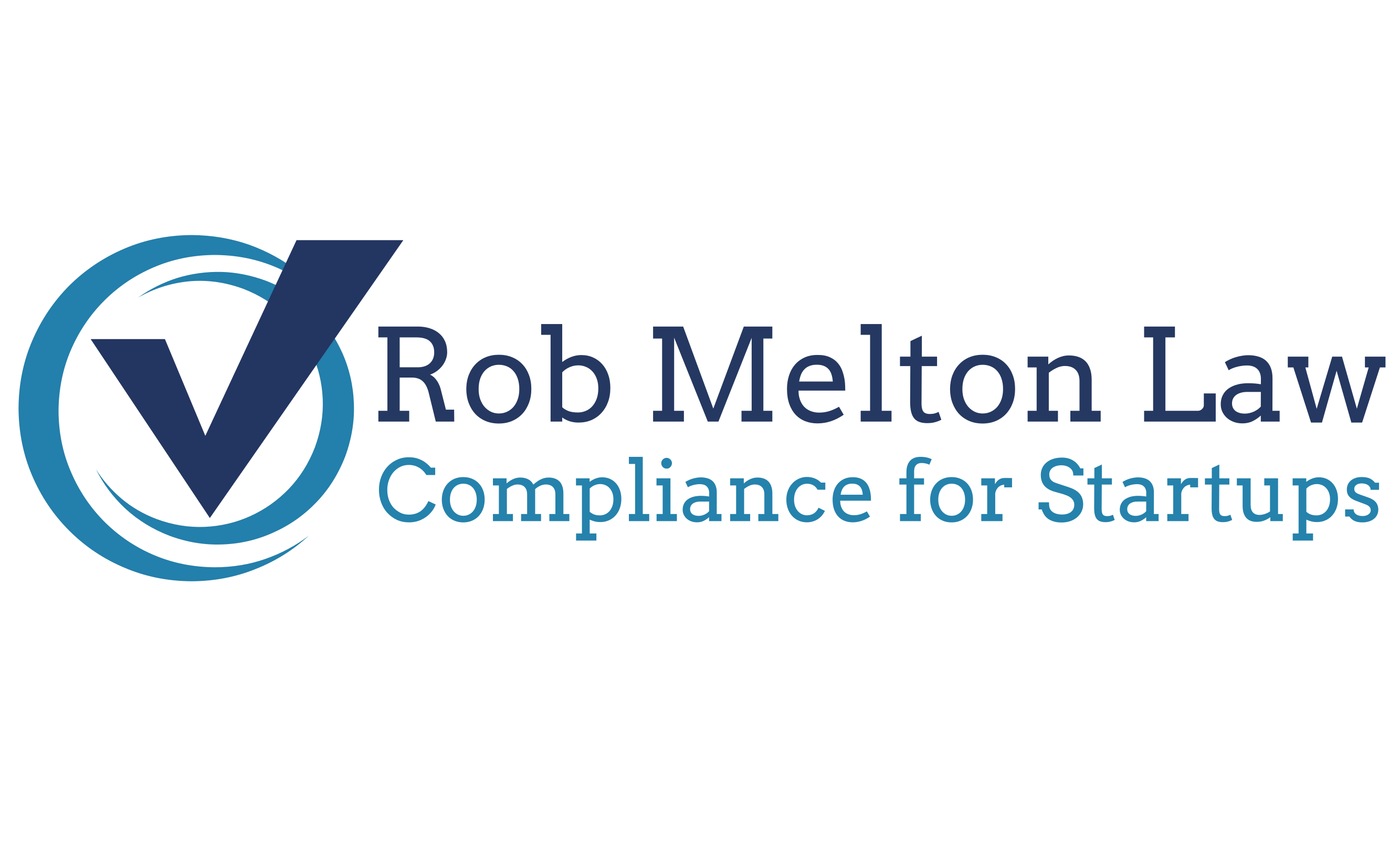Protecting personal information and maintaining privacy is of utmost importance in today’s digital age. If you are a healthcare provider or a business that handles protected health information (PHI), you must comply with the Health Insurance Portability and Accountability Act (HIPAA) and its associated regulations. One crucial aspect of HIPAA compliance is the Business Associate Agreement (BAA), which sets the guidelines for safeguarding PHI when a covered entity is working with business associates or a business associate is working with an agent or subcontractor.
At Rob Melton Law, we work with privacy law everyday and offer comprehensive legal services to assist healthcare providers and businesses in navigating the complex privacy requirements of HIPAA, including the creation, negotiation, and review of Business Associate Agreements. As an experienced privacy lawyer I understand the intricacies of HIPAA and can guide you through the process to ensure compliance and protect the privacy rights of your patients or customers.
Understanding HIPAA and Business Associate Agreements
HIPAA is a federal law enacted in 1996 to safeguard individuals’ medical information and establish guidelines for the healthcare industry’s use and disclosure of PHI. Under HIPAA, covered entities, such as healthcare providers, health plans, and clearinghouses, must ensure that any business associate they work with also comply with the privacy and security standards outlined in the law.
A Business Associate Agreement is a legally binding contract between a covered entity and a business associate or between business associates. It outlines the responsibilities, obligations, and safeguards that the business associate must adhere to when handling PHI on behalf of the covered entity. This agreement is essential for maintaining compliance with HIPAA and ensuring the protection of sensitive health information.
Services We Offer
I am well-versed in HIPAA regulations and can provide a range of services to help you with your HIPAA compliance and Business Associate Agreement negotiations:
2.1. BAA Creation and Review:
I understand that each healthcare provider or business has unique needs and requirements. I can assist you in creating comprehensive and customized Business Associate Agreements tailored to your specific circumstances. I will ensure that the agreement meets all the necessary HIPAA requirements, including provisions for data security, breach notification, and limitations on the use and disclosure of PHI.
If you already have a BAA in place, I can review it thoroughly to identify any potential gaps or areas of non-compliance. We will provide you with expert guidance on how to address these issues and update your agreement to meet the current HIPAA standards.
2.2. BAA Negotiation:
Negotiating a Business Associate Agreement can sometimes be a complex process, particularly when dealing with large organizations or multiple business associates. I am skilled negotiators with a grasp of current market contract stnadards who will work on your behalf to ensure that the agreement is fair, balanced, and meets all HIPAA requirements. We will advocate for your best interests while maintaining strong relationships with your prospects and customers.
2.3. Compliance Audits and Training:
Maintaining HIPAA compliance is an ongoing process. Our team can conduct comprehensive compliance audits to assess your current practices and identify any areas of vulnerability. We will provide you with a detailed report outlining our findings and recommendations for remediation.
In addition, we offer customized training programs to educate your employees on HIPAA regulations and their responsibilities regarding PHI. By ensuring that your staff is well-informed and trained, you can reduce the risk of privacy breaches and potential penalties.
Why Choose Us?
3.1. Expertise and Experience:
I have extensive experience in the field of healthcare privacy law. We have worked with numerous healthcare providers, business associates, and covered entities, helping them achieve HIPAA compliance and navigate the complexities of Business Associate Agreements. Our in-depth knowledge of HIPAA regulations allows us to provide practical and effective solutions tailored to your specific needs.
3.2. Tailored Solutions:
We understand that each client is unique, and we take a personalized approach to address your specific requirements. Whether you are a small healthcare practice or a large healthcare system, we will work closely with you to develop a customized strategy that aligns with your business goals while ensuring compliance with HIPAA.
3.3. Commitment to Client Success:
At Rob Melton Law, our clients’ success is our top priority. We are dedicated to providing exceptional legal services and building long-lasting relationships based on trust and mutual respect. Our team is responsive, attentive, and committed to delivering timely and effective solutions to all your privacy law needs.
Contact Us
Protecting the privacy of personal health information is a legal and ethical responsibility. If you require legal assistance with your Business Associate Agreement requirements or any other aspect of HIPAA compliance, our experienced privacy lawyers are here to help.
To schedule a consultation or learn more about our services, please contact us. We look forward to assisting you in safeguarding the privacy of your patients’ or customers’ health information and ensuring your compliance with HIPAA regulations.
Privacy and Security Laws of HIPAA and the HITECH Act:
HIPAA (Health Insurance Portability and Accountability Act) and the HITECH (Health Information Technology for Economic and Clinical Health) Act are two important laws in the United States that aim to safeguard the privacy and security of individuals’ health information. HIPAA was enacted in 1996, while the HITECH Act was passed in 2009 to address electronic health records and strengthen privacy and security provisions.
HIPAA’s Privacy Rule establishes national standards for protecting individuals’ medical records and other personal health information. It governs how covered entities and business associates must handle and disclose protected health information (PHI). The Privacy Rule grants individuals certain rights regarding their PHI, such as accessing and amending their health information.
The Security Rule, another component of HIPAA, requires covered entities and business associates to implement appropriate safeguards to protect electronic PHI (ePHI). It sets standards for administrative, physical, and technical safeguards to ensure the confidentiality, integrity, and availability of ePHI.
The HITECH Act expanded upon HIPAA by strengthening its provisions related to security breaches and increasing penalties for non-compliance. It also introduced provisions for breach notification, the requirement for business associates to comply with HIPAA regulations directly, and the promotion of health information technology adoption.
Covered Entity and Business Associate:
A covered entity refers to certain organizations and individuals that are subject to HIPAA regulations. It generally includes healthcare providers, health plans, and healthcare clearinghouses. These entities conduct certain transactions electronically, such as submitting health insurance claims.
Business associates are individuals or organizations that perform certain functions or services on behalf of covered entities, involving the use or disclosure of PHI. Examples of business associates can include billing companies, IT vendors, cloud storage providers, and third-party administrators. Business associates are directly subject to HIPAA regulations and are required to comply with specific privacy and security requirements.
Definition of Protected Health Information (PHI) and Deidentification Options:
Protected Health Information (PHI) refers to individually identifiable health information that is created, received, or maintained by a covered entity or business associate. PHI includes information about a person’s past, present, or future physical or mental health condition, the provision of healthcare, or payment for healthcare services.
HIPAA provides methods to deidentify PHI, removing specific identifiers that can be used to identify an individual. The two approved methods of deidentification are:
Expert Determination: This involves obtaining a professional opinion from a qualified expert that the risk of identifying an individual from the health information is very small.
Safe Harbor Method: This involves removing 18 specific identifiers mentioned in the HIPAA regulations, such as names, addresses, social security numbers, and dates, effectively rendering the information deidentified.
HIPAA Requirements for a Business Associate Agreement:
A business associate agreement (BAA) is a contract between a covered entity and a business associate that establishes the permitted uses and disclosures of PHI by the business associate. The BAA also outlines the responsibilities of the business associate regarding the protection of PHI.
Under HIPAA, a BAA is required whenever a covered entity engages a business associate to perform functions or services that involve the use or disclosure of PHI. The BAA must address certain provisions, including:
Obligations of the business associate to safeguard PHI.
Permitted uses and disclosures of PHI by the business associate.
Compliance with HIPAA regulations by the business associate.
Reporting and mitigating breaches of PHI by the business associate.
The termination or termination of the agreement.
The Need for a Privacy Lawyer for Covered Entities and Business Associates:
Covered entities and business associates may benefit from having a privacy lawyer to navigate the complex landscape of HIPAA and ensure compliance with the regulations. A privacy lawyer with expertise in healthcare law can provide several valuable services, including:
Advising on legal requirements and obligations under HIPAA.
Drafting and reviewing business associate agreements to ensure compliance.
Assisting with developing policies and procedures for privacy and security.
Conducting risk assessments and audits to identify vulnerabilities.
Providing guidance in the event of a data breach or compliance violation.
Representing the entity in interactions with regulatory authorities.
Staying updated with evolving privacy and security laws and regulations.
Given the potential legal and financial consequences of non-compliance with HIPAA, seeking the guidance and expertise of a privacy lawyer can help covered entities and business associates mitigate risks and ensure the protection of individuals’ health information.

